There are times people like to leave the hustling and bustling of the city life to explore what the wilderness holds.
It can actually be therapeutic to subject oneself to the solitude of the wilderness and recharge. It will go a long way in providing a fresh perspective to life and appreciating what you have.
While it does not sound reasonable, many people are curious to explore what the woods and wilderness hold inside. Even as a college student, taking some time off in the wilderness can help reduce stress and also recharge. You can get help with statistic homework or ask someone, “do my math homework”, or your essay and term paper to allow you to concentrate on having a good time in the wilderness.
Going to live in the wilderness is a big step. As a result, it is essential to be prepared in every way you can. This is why this article will explore the most critical things to bear in mind to be ready. These are experiences from people that have been there and know what it feels like. This is real information about living in the wilderness that no one will tell you. It will, however, go a long way in preparing you for what to expect.
1. Illness
There is no immediate healthcare system available in the wilderness. Also, there is no healthcare personnel to attend to you. Should there be emergencies, you are on your own. Also, the possibilities of getting sick increase as you are exposed to wild nature. In addition, you are also exposed to nature at its worst side. There are carriers of diseases around like bug, spiders, and rats, etc.
As a result, you will be susceptible to a high number of illnesses and diseases. There are bacteria and viruses that thrive in damp areas. The unfair temperature might even affect some parts of the body, like the lungs and the respiratory system. The chances of getting infected with pneumonia are pretty high. The cold temperature might be unbearable, which can trigger illness as well.
2. Insects
There will be a lot of stagnant water in the wilderness. This provides the perfect breeding ground for insects. Famous examples are mosquitoes that thrive around water. Excess mosquito bite, as you know, makes it easy for you to develop malaria. In addition, there are other biting insects like ants and soldier ants, especially, which could make your stay a pretty miserable one. They, however, only thrive in the autumn. If your trip is in the summer, prepare to be pestered by wasps and bees.
There is also the possibility of having spiders all around you. Chances are they will find their way into your camp bag, clothes, blanket, and shoes. Make sure to check your sleeping kit and shake it well before sleeping. If you have a phobia for insects, you might want to reconsider a trip to the wilderness.
3. Fire
You are in the wilderness, and the temperature could drop to uncomfortable levels at night. With the absence of a central heating system, you need to get creative in providing warmth. The bonfire will not be an issue when it’s dry weather outside, but the problem comes when it is damp. You also need fire to cook and boil water to keep your body hydrated, full, and warm.
You need a bonfire when it gets dark, as your flashlight might not be enough. There is also the possibility of the fire dying out in the night. As a result, you will need a lot of dry wood to keep it up. Should the fire run out without wood to keep fueling it, sleeping might be difficult. It is also not recommended to sleep very close to the fire as it is pretty risky.
4. Food & Water
You will need to pack enough food and other supply that will last you for the duration of your trip. Make sure to pack a pile of readymade food. If you want to cook, make sure it is a meal that will not take much time to prepare. You need to be careful of running water, especially if it is stagnant or above the ground. This is because there is a high tendency that it might have been polluted.
If you go to the wilderness with your vehicle, you might be able to carry enough water that will last you. However, when you run out of the water, make sure you boil the water to kill all germs, bacteria, and other harmful elements.
5. Rats
Rats are pretty common in the wilderness. You will see varieties in big sizes as well. While they are typically harmless, they are carriers of different diseases. As a result, keep your food and other things they can eat secured. Should a rat eat or even bit any of your food, you will be better off disposing of it. They thrive in the wild, as this is their natural habitat.
6. Isolation
Man is a communal creature, and we evolved to live in groups. That is why we have families, tribes, settlements, suburbs, etc. This is why we get married, have kids, and live together. Even at work, we stay as a team for the greater good of the company. Many people who even love their personal space also crave human interaction once a while.
In the wilderness, however, unless you travel in a group, be aware that you’ll be alone with the wilds. Your companions will be birds, squirrels, deers, and other wild animals. In time, it is going to be you and your thoughts. Staying for too long is not recommended as the isolation could get to you.
7. Darkness
Living in the community has made us all used to the light. We have been used to light from electricity, street light, building, etc. Lightning is part of us in the real world that we cannot live without. This, however, is not the case when you get to the wilderness. The darkness will be thick and terrible. To make the darkness more intense, the trees and its branches will shield you. You will only have to depend on your flashlight, mobile phone torch, and bonfire. Yet, there is the possibility of your torch running out soon as there is no way to charge it.
This is why you need to gather your resources like wood and dry branches to make fire at night. Moving about in the dark is a bad idea as it increases your chances of running into falling branches, wild animals, and, especially, snakes.
8. Possibility of Going Crazy
Living in the wilderness brings you to a new territory entirely. You might have lived in the city all through your life. You are already used to the amenities and every good thing that comes from the urban lifestyle. When all these suddenly go away, coupled with the fact that you are isolated, it could take its toll on one’s mental health. This becomes pronounced when your immediate neighbors are not fellow humans but animals and birds. Sadly, not all these animals are friendly, and some of them might want to attack you as it’s their place to live.
This could trigger fear or hallucination, especially in the dark. Even the shadow of a tree branch will look like an animal coming to attack you. This experience can take its toll on one’s mental health.
9. Sounds
We live in a noisy place, and it has already become part of us. We hardly take note of the sound as it is everywhere. The kids playing in the park, the honk from the vehicle, the airplane flying over, the neighbor playing their music, etc., there are a lot of common noises in our world, and we’re used to it.
All this will disappear when we get to the wild. It will be like a different world entirely as your ears will crave for the sound it is used to. On the contrary, the sounds around will be birds chirping, animals at night, insects and bees, etc. Many of these sounds will not be pleasant, and you will likely hear them all. The first time you hear a bear growl might make you pee in your pants.
10. Homeless People
Your possibility of running across many homeless people increases when you get to the wilderness. People might present themselves as friends, but you need to be careful. Many might pretend to care about you, but in fact, they do not. There is the possibility of meeting miscreants who can attack and steal your personal things. It might just be homeless kids roaming around while you are hiking. Reject the offer to trust strangers, and do not leave your valuables lying around.
Concluding Remarks
Living in the wilderness is a new and exciting endeavor. If you are truly prepared, you can have a good time and develop lasting memories. As a college student, you can get help with statistic homework, math, and essay. This way, you can concentrate on having a memorable time in the wilderness.


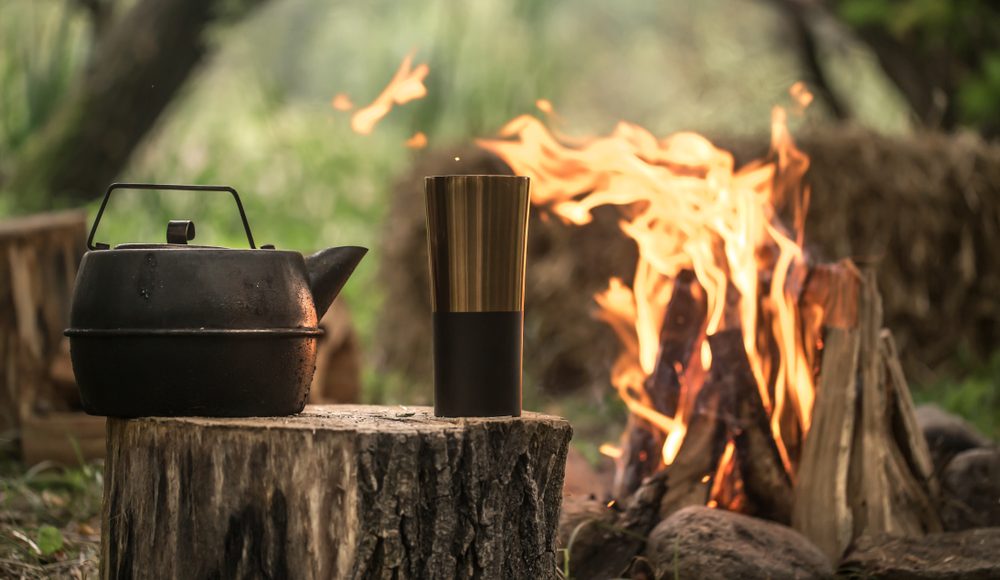

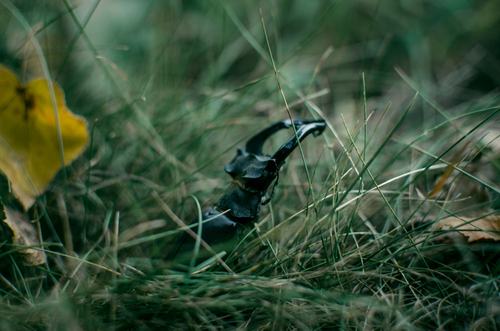
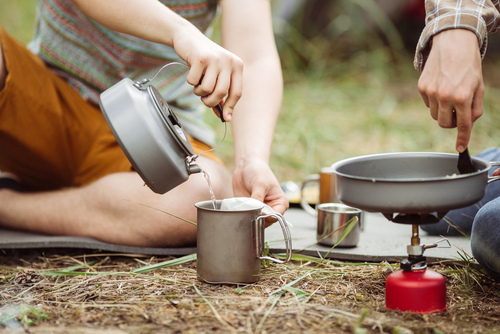
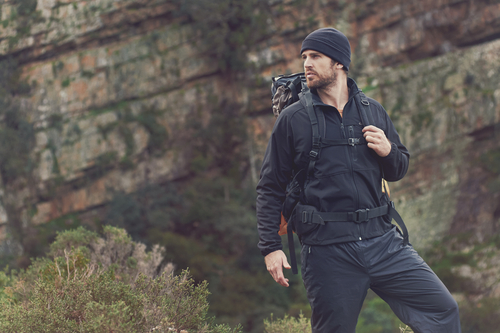
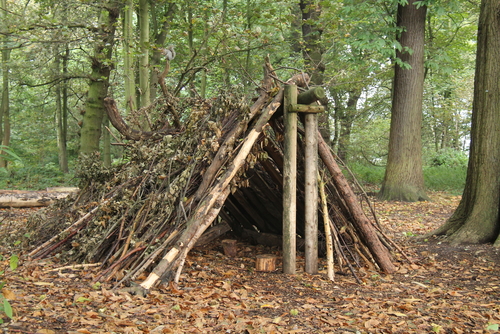

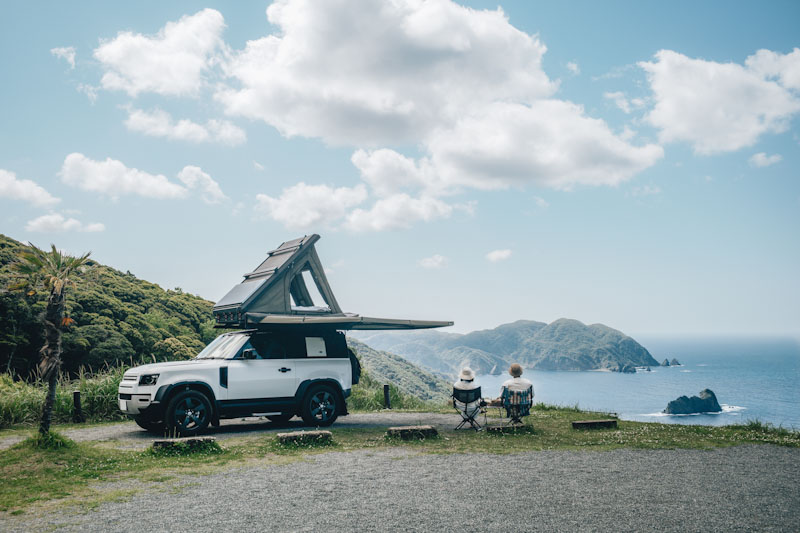
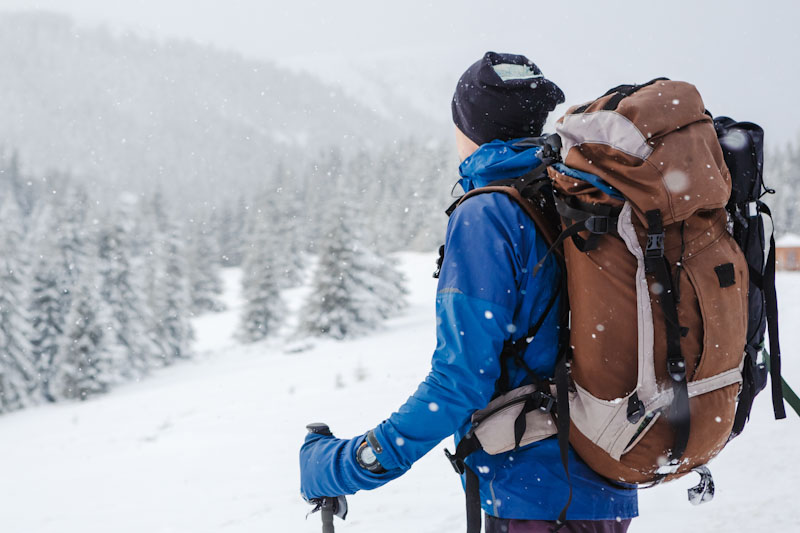
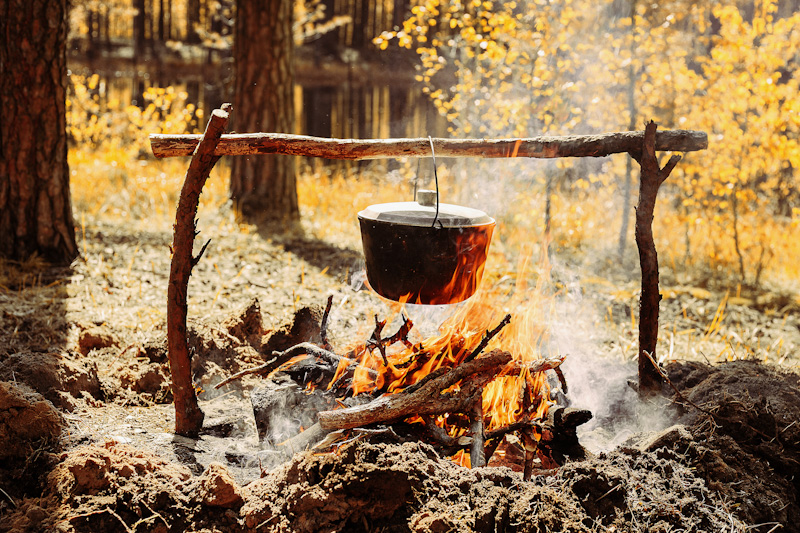
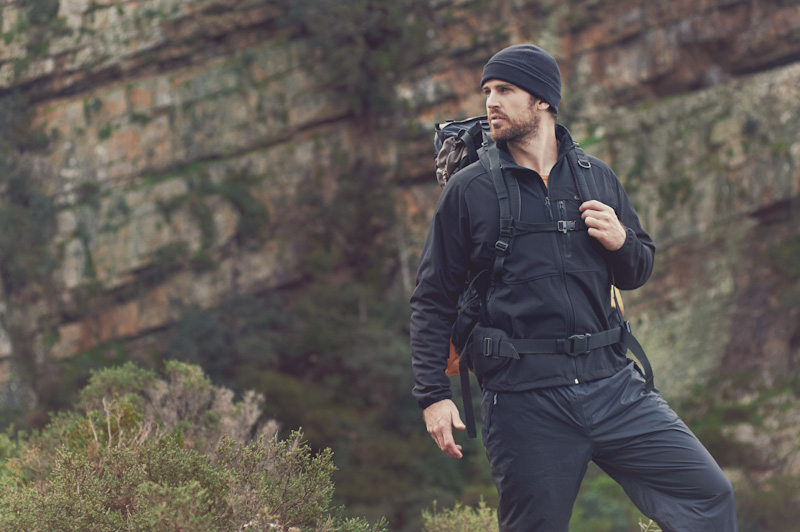


Piranhawench | June 29, 2020
|
You write this like the wilderness, peace and quiet, your own thoughts, lack of daily din of the city, the sounds of nature, cooking over a fire, boiling water to drink,, even the lack of city light so bright you can’t see the stars, all these things are bad and scary. And illness? A well stocked first aid bag including a first aid book, not digital, an actual book, will keep you well for the most part. Take a CPR/First Aid Class before you go. Yes, if you have a major illness or accident you might have to seek medical help,
Plan ahead. Take all prescriptions medications with enough for twice the time you’re going to be gone, Take plenty of water, extra food like canned or freeze dried meat, veggies, fruit. (Fresh food will only last so long.) Utensils needed to prepare and eat food. An axe, shovel & rope and tent, flash lights, solar powered charger for phone, emergency radio etc. Hiking in? Take all of the above in smaller quantity. Unless this is a serious bug out, a camping trip is a wonderful experience.
You’ll be surprised how relaxing it is sitting by a campfire enjoying the sound of it crackling. Away from the light of the fire, look up! In town you may not see many stars. You can when away from the lights of civilization. Breathe deep, the air is fresh! If you’re under the trees you might smell the pine. Enjoy! Don’t be afraid. If you’ve never camped, go with friends that have.
JPF | June 29, 2020
|
OK. I’ll bite maybe . Was your wilderness experience Central Park? Or maybe Long Island. Those were true wilderness areas about 250 years ago. They are now “Urban Wilderness”…so desecrated by mans assumption of entitlement’ and ignorance of the values that nature can provide. . Homeless people tend to stay close to metropolitan areas’ because of readily available support services’ such as soup kitchens’ etc. Suggest you visit’ perhaps with a guide’ a real wilderness area. Rats seem to only cling to ultra populated areas’ because there is more free food. There is very little True Wilderness left in the US’ but it is awe inspiring. I hope you are able to experience that.
J R East of the Mississippi, still rural... | July 5, 2020
|
FYI
Decent content but please know this:
A deranged individual attacked and killed a hiker on a remote trail in VA last summer. The psychotic criminal had been mugging or hard pan handling hikers for food until one person said ‘no, buzz off’. The hiker was not armed & suffered a machete hack to the upper body by the crazy. I am legally armed. This would’ve turned out different w anyone associated w my group, vastly different.
Also, if you weren’t aware, upstate NY is huge & rural. And if sanity is an issue, the frequent Sasquatch sightings will keep you up at night. Many bumps in the night will keep you from getting a full nights sleep in tandem w the slow mental decline into neurosis.
Very few ppl are going to completely toss all human creature comforts. Bic lighters, flashlights & any prepared goods are required for the softies trying to get away from their square parents who don’t want them smoking dope locked in the basement.
How many millennials are going to willingly put down their electronic devices or video games & chop wood or make a lean-to?
Today, your real bug out location might be crawling w crazed, diseased addicts & yes, I don’t trust them. Let them earn whatever they ask for, even a light or piece of cord, if at all. Good will is at a minimum during a real bugout. Many unprepared ppl (AKA Zombies) are drugged or in withdrawal up in the hills, or coming out of months of tortured lock down, bored & broke. They see you as an easy mark. You have what they want. Be prepared to defend yourself. Set a guard for your campsite. Always have eyes seeking fir movement, footsteps & signs of any activity, human or animal. A visual display of an openly worn sidearm is an effective preventive of unwanted criminal conduct. A like minded person will not be scared by your weapons. They will approach you regardless since they are not intent on creating problems. If you unfortunately reside or are trekking through a state w pistol restrictions, a pump shotgun will suffice against 2 or 4 legged creatures. Those bad actor clowns will ruin the OP of meeting good, like minded ppl as yourselves. Be wary of strangers until trust is formed.
If heading to the country helps, go for it! Just be advised…
A real bug out w/o proper EQ maybe the worst experience of your life. Being hungry, cold & wet fosters an environment for poor decisions w serious consequences. You can never be prepared enough. There are holes in every peppers plans, gear or stash.
You can only carry so much & you can’t cover for every contingency, just for the most screaming emergency at the moment.
Go forth and conquer the country. Don’t forget the batteries & TP…. Sorry to rain on everyone’s parade but bugging out has a massive negative psychological impact on those endeavoring to avoid the plagued cities or tyranny of crazed institutions. Clear thoughts will be blurred even to those who think & feel prepared. Some will swim, some will sink. Sadly, this is predictably probable.
Do your best to accommodate for the most common situations & organize as best as possible w like minded people.
Bill In Idaho | June 29, 2020
|
Hi, Sarah ! Yep, Yep, and Yep. You hit on All of the main issues. I’ve been there, done that – over the last 70 years. First – Shelter – Weather proof. Then Fire with Stone fireback and a short chimney – facing into your shelter. Then Water, then Defense perimeter. Then dress warm (if not already done) – wet is as bad as cold. Cooking and the rest when you can – and have time and strength.
Armin | June 30, 2020
|
Agree with you 100%, Sarah. Living under true wilderness conditions probably isn’t the “walk in the park” that most people imagine it to be. Going it alone would be almost impossible or impractical in an extended grid down situation so you would have to be part of a wilderness community to have any reasonable chance for all of you to survive. Even just going camping for a week or two is a WHOLE different world and that’s under ideal conditions in peacetime. If a true emergency happened and we were forced to flee to the wilderness to survive many others would be doing the same and the competition for finite resources would be intense to say the least. Some would not care one whit about another’s concerns. Only their own. And then the troubles begin. There are so many things to consider. Think of the myriad of apocalyptic scenarios we’ve been exposed to such as “The Walking Dead” series as an example. Under the right conditions we’re all animals and predators underneath the thin veneer of civilization we’re all so proud to wear.
Alex | June 30, 2020
|
Well said. That’s how life is even for the animals born in the wilderness, with all the instincts and tough skin. Just finding food, water and evading predators is very, very hard. They can go weeks to score a meal. And that’s 24-7 survival life or death game. For people who live in the cities that is a dream, pure fantasy. Going alone… in a SHTF scenario then… more than fantasy, it’s akin to going to the wild just to commit a slow, horrible suicide. The first accident with no help to call… game over. There are so menu things that just can go wrong. Heck, most people have no idea how HARD it is already living in rural areas, away from all the wonderful and softening amenities. And that’s a walk in the park compared to actually living in the wilderness. Yes training can help you toughen up and get wiser. But it’s still just unrealistic to live too long in the woods. Ok now let’s go camping that’s good enough LOL
Alex | June 30, 2020
|
Nice article. I think the general idea is that it can be overwhelming and get to you in many ways. Yes, I agree with that. It takes time, dedication and experience to get roughened enough to even start feeling comfortable in the wilderness. I confess I feel equally safe (or unsafe) staying in the city as in the wild, because basically staying alive is dangerous no matter where we are LOL But for the vastly major part I’ve found that people are more dangerous than animals. Unless you step on, threat in some way, or become food, animals will avoid you. Insects are different, they constantly attack us for myriad reasons. Humans can be real threats as well, as some people are just wicked by nature. But yes, life is very very hard in the wilderness.
Paul Shultz | June 30, 2020
|
Sara, this is nice article to scare people to stay In the city. I have been backpacking my whole life and would not give up living in wilderness over living in the most dangerous place in the world (the city). I enjoy the sights and sounds of nature which is natures alarm system. Learn what the sounds are for your protection and don’t mess with the animals and they will not mess with you. If you venture into the wilderness make sure you are prepared first so your experience will be enjoyable. The best lesson I learned over the years is too respect mother nature cause if you don’t she will let you know who is in charge.
RALPH GILMORE | July 6, 2020
|
I am 78 years old and have spent a career, from age 22 when I graduated until age 72 when I retired, as a geologist. A great deal of that time was in the wildness of various parts of northern Canada and I would like to make two points. First you are unlikely to catch diseases like you do in the city, but injuries are common sprains, broken bones, bear attacks and surprisingly gunshot wounds (I have witnessed two). Second and most important is to have a quick reliable means of extraction and a wildness first aid kit (containing antibiotics and prescription pain killers).
The last point I would like to make is that I have asked many of my guides both native and French Canadian what one thing they would not want be without and to a man they have answered a good axe though styles did vary.
Klais Surik | November 24, 2020
|
We even wrote an essay on this topic, but there was very little data. Because there are few books available in the public domain on the Internet. Well, at least I managed to ask for help and find a company that was able to write such an essay. Because everyone who has such a problem is better to contact professionals and they will help already, the main thing is to study the ratings and find them. Then you can even write a dissertation, because the topic is quite relevant now.
word counter | December 25, 2020
|
whoa, super nifty
MyLittleOne.Photography | August 30, 2021
|
That’s really an informative article, thanks for sharing.
Smm Panel | August 31, 2021
|
That’s really are good tips to survive in the wilderness, I’m planing for the hiking trip soon so I keep in your advice. Thanks for sharing your experience.
Smart and Safe | August 31, 2021
|
Nice article, the traveling trend is now in fashion but we must have aware of all survival techniques for our safety. Thanks for sharing these tips.
Jessica Shah | October 22, 2021
|
Nice blog, Thanks for sharing this information with us.
Depth world | December 24, 2021
|
This is really helpful post and very informative there is no doubt about it. I found this one pretty fascinating and it should go into my collection. Keep writing
coderepublicdesigns | January 7, 2022
|
Thank you for sharing your article. It was really great to read it.
mason ethan | January 11, 2022
|
A great article, With lots of information in it, These articles help users interested in the assignment site
sydneyheadshot | March 3, 2022
|
Great Information , thanks for providing us this useful information.